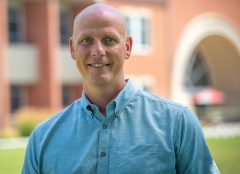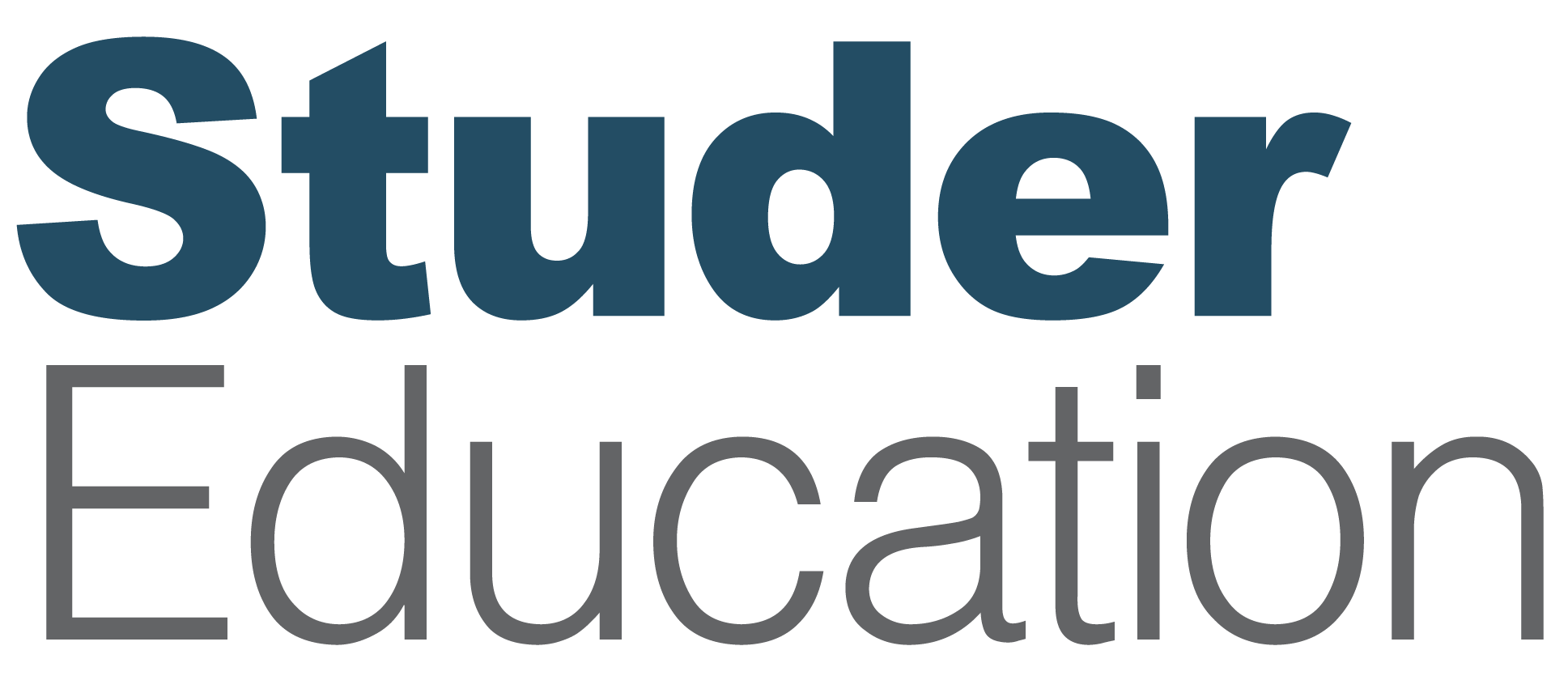
It’s one thing to talk about service excellence, another to define it collaboratively and actually put it into practice. Join Dr. Janet Pilcher and Superintendent Dr. Derek Bub to learn how West Ada School District actively engages diverse voices to define shared service standards and uses a feedback process to build understanding and drive improvement.
This episode addresses questions such as:
- Why is it beneficial to involve a cross-functional team in defining service standards?
- How can a school district use its defined service excellence standards in practical ways, such as hiring and employee expectations?
- Why is closing the feedback loop by following up on survey results critical, and how can it be done effectively?
Latest Episodes
Derek Bub: What does “excellence” mean? We use this word excellence all the time. And defining that and actually putting that down on paper is really important for people.
[Intro music plays in the background.]
Introduction
Janet Pilcher: Hello everyone, welcome to the Accelerate Your Performance podcast. I’m your host, Dr. Janet Pilcher, founder and president of Studer Education.
And you know what I’m looking forward to? Our Destination High Performance Higher Education Leadership Conference. It’s coming up on June 3rd and 4th. We’ll be in Pensacola Beach for two days of interactive sessions, networking, and tools to take your institution to the next level.
If you haven’t already registered and you’re out there and you’d love to come to Pensacola Beach and see some great colleagues presenting some of their unbelievable results, please go to studereducation.com/events to see a full agenda and register. Can’t wait to see you there.
But on to the podcast episode. Excited today to be joined by Dr. Derek Bub, Superintendent of West Ada School District since 2021. Bringing over 20 years of experience to his role, Derek has a very unique background. He previously worked as a special investigator before dedicating himself to a career in education. Today he’s known for his strategic vision and strong commitment to his community. He also serves on the board of St. Luke’s Hospitals.
Listen along as Derek and I dive into the importance of defining service excellence, the commitment needed to close the feedback loop. and what it takes to build a shared vision. Let’s jump right in.
Interview
Janet Pilcher: It’s with great pleasure that I welcome Derek to our show today. It’s great to have you with us. Thanks for being here, Derek.
Derek Bub: Yeah, thanks so much. I’m very excited to have a conversation with you. Thank you for the opportunity.
Janet Pilcher: Absolutely. And we’re going to talk about service excellence and the feedback process. It’s one of my favorite topics, Derek. I just, you know, part of the foundation of all the work that we do is serving others and providing the best service we can. So really excited about the work that you’re doing.
Derek Bub: You know, it’s interesting. I think that customer service piece and the service that we provide, not just to our parents, our students, but also to one another, is one of those misses that sometimes we have in any large organization. We get so busy doing the work or, you know, whatever that job is and forget about serving one another and serving those that we get to work with.
Janet Pilcher: Absolutely. It’s very dear to my heart. And it’s really from, you know, from the years ago with Quint Studer and the founder of Studer Group, who did the work in healthcare, you know, service was at the centerpiece of the work. And that’s why I fell in love with it years ago.
So let’s talk some specifics with the work that you’re doing. Let’s start with your service excellence standards, which you all call actions of excellence. And you work with the cross-functional team, then specific groups met, like principals and office staff. And you collectively pulled those people together. So why was it important, Derek, to get their perspectives across those group settings? And what did it allow you all to capture?
Derek Bub: You know, I think just starting the conversation with different groups, you really quickly see not only are there different expectations for one another, I think there’s different expectations for the other group, right? And so we really felt like we’re a large district. We serve about 40,000 students across Idaho. And we just thought it was going to be important to get everybody’s perspective. And we really have three sets of those perspectives. One being, what is all staff? What is our standards of excellence for all staff? And then when you kind of step into that leadership role, what is that standard of excellence for building leadership? And then what is that standard of excellence for district leadership?
We thought those were really good conversations, but there’s this magic that happens is then you also get to hear what do all staff expect from building leadership or what do building leadership expect from district staff? And that’s been that kind of next level. Maybe that surprise that we didn’t realize was going to happen because I think that sometimes you had building leadership say, “well, you know, we should expect this from ourselves. And this is how we should perform,” and staff and district leadership were saying or building leadership were saying, “no, maybe it should be a little bit different.”
So there was just really good conversations, deep conversations around that. And the opportunity to really define what a West Ada employee looks like is amazing. I also think and I’ve heard this in so many things, you know, from your book and everything. Leadership is just not a title. And if we just bring in principals because they have leadership somewhere in their job description or district office personnel because they have leadership somewhere in the job description, you, you miss out on really key employees. And maybe it is that employee that welcomes kids into our elementary school and makes them feel welcome. What, you know, who is it that we’re missing? And so we really tried to get a good cross section of employees from around the district. And if we only went with one group or one committee, I just didn’t feel like we were going to get as deep of a conversation around.
Janet Pilcher: Yeah, that’s so good. And, and, you know, it’s interesting just by doing that process, you really bring teams together in a whole different way and ways they would never come together. Right, Derek? You know, they don’t naturally connect with each other. They’re just doing their jobs. But you really, they begin to understand people’s perspectives and how they function and how they show up every day.
Derek Bub: Well, and just in a large district, in a system our size, we don’t take the time to get people together from a cross section, right? Like one of the people was our visual media specialist, one of the people on the panel. And he was able to express he has a, he’s working with a secretary from one of the elementary schools that he probably has never worked with one on one. So you gain this different level of respect and understanding from their perspective. And at the same time, you’re allowed to share your own perspective and what your expectations are. So yeah, it was, it was a learning event, learning experience over the past year. And it’s been really good for all of us.
Janet Pilcher: Yeah. And I love, as you being a larger district, I love that you started here. Because I think this is really what connects people to the work. You know, as you’re thinking about it, are there any significant takeaways or key learnings that you saw during that collaborative process?
Derek Bub: Yeah, I mean, so I would say the first one that I think is probably the most important is just having the conversation around what does excellence mean? We use this word “excellence” all the time. And defining that and actually putting that down on paper is really important for people. Whether they’re going above and beyond, and I always tend to think that our employees are always trying to go above and beyond, but setting that threshold of “this is what excellence is” is really important for people to understand.
We use this term in West Ada, “West Ada worthy,” but we use it so frequently that somebody at once asked me, “what does West Ada worthy really mean?” And, you know, are we hiring for West Ada worthy? Are we evaluating for West Ada worthy? Are we, is that really who we are, or is that just, we see something excellent? We say, “oh, that was excellent.” It’s important to define that for everybody because then that gives everybody a metric to work towards.
So that was one piece. I think the other piece is that I recognize is our employees have higher expectations for themselves than they do for others. And so, you know, right away, they sit down and they start brainstorming, “We should do this and we should expect this from everybody.”
And pretty quickly, you think to yourself, “Ok, that wasn’t where we were going to go. What we really want to talk about is what are the minimum expectations? Like what how do we want to treat one another? How do we want to act around one another? What does leadership look like? What do you expect from me as a superintendent? What do you expect from a building principal?” All of those components.
But really quickly, it was easy for them to say what we should expect from them. What they should expect from us was a more challenging conversation, but I think equally beneficial.
Janet Pilcher: Yeah, yeah, so good. And that, that is so typical that when you have those discussions, they step it up, right? They’re not easy on themselves when they build those standards. So that says a lot about our people, Derek. You know, it says a lot about what people really want. They want excellence and they want to be high-performing and they want that clarity in terms of what that means. And they don’t want to work in an environment that’s not productive for the most part.
Derek Bub: Yeah, absolutely right. It makes it inspiring work when you get to sit around and hear those conversations and just be part of it. It was a really positive process.
Janet Pilcher: It does. So as you’re moving forward, how do you envision these actions fostering excellence, having a shared understanding of what defines excellent services you all have created, and how people collaborate with each other? So how do you want to see these districts used and influence the work?
Derek Bub: I think first and foremost, I hope it defines for every single person what we are all about. And so, you know, when we say “West Ada worthy,” it gives everybody that barometer of this is what “West Ada worthy” really means. Not just in, you know, our current employees, but also on who we are hiring. And I think it starts that conversation when we’re sitting around the table and we say we have three great candidates. Which one of these candidates meet these expectations from our side?
But then on the other side, it gives us an opportunity to hand something over to an employee and say, “Janet, this is what we expect from our employees. Is that area you can work with?” I’ll use, you know, just that service aspect, right? I truly believe in my heart that customer service is one of our, you know, one of the newest best instructional strategies that are out there. And that is customer service to our employees, that is customer service to our students, and customer service to our parents.
If we utilize that, we can actually go a long way because I think education oftentimes is won and lost at the dinner table, meaning if you have great customer service and kids are coming home and saying, “oh, my gosh, I love the culture at our school. The secretary is always welcoming me.” All of those things provide an environment which kids can learn. The learning can take care of itself. Our teachers do a great job with that. And so, but if you’re an employee that thinks “customer service probably isn’t my thing.” and there are people that are like, “I don’t know if that’s what I want to do. That’s not what I signed up for.” Then West Ada probably isn’t the perfect spot for you. And we might as well know that right away. Let’s have that conversation and tell us why that doesn’t work. And then, you know, that’s one example of this.
And there’s so many of those examples in which we can say, “hey, this is who we are as an organization.” And people ask all the time, “what does it take to be an administrator in West Ada?” And that was another aspect we wanted to touch on. When we, when somebody doesn’t get a job, we just had, we just flew some administrative jobs. We have 150 candidates for five administrative positions. So when somebody says, “hey, I didn’t get a job. What can I do different?” Here’s what I want to be able to say: “Here’s our standards. excellence. You need to show in an interview that you’re excelling in these areas. And if you can do that, then that should get you far.”
Now, you know, I think it just starts that conversation, but I think it really does define who we are as an organization and what we are most proud of, and what we’re going to hold one another accountable for.
Janet Pilcher: Yeah, so good. Yeah, and it does, it just, it’s embedded throughout everything that you do. And the people, I love that, with the people that you hire, you’re really hiring toward people who want to live those expectations. And you can be very clear with that. That’s it’s so, so good, Derek.
So let’s talk, you talked a few minutes ago about you all providing service to each other. And so the district service surveys are a way that we assess how well we’re doing that. You all completed that process. So what strategies are you using to deliver the feedback? And how are you planning to close that loop from those surveys?
Derek Bub: Yeah, the survey process has been a game changer for West Ada. I don’t say that lightly. It has been an absolute game changer for us. So we, like every organization, I think, send out so many surveys, I think where we have missed the step in the past is that follow up, right? So I may say, I may ask the staff, “hey, how is, how are our principals doing? How’s the superintendent doing?” I get this feedback and I say, “okay, thank you.” And I think all of our educators probably internalize that a little bit and find out ways that they can improve on that survey.
With the step that we always miss is going back to stakeholders, whoever that might be and saying, “Hey, I recognize that you don’t feel like I am making positive phone calls home or that I’m making having, positive interact– you’re not having positive interactions. You’re right. I’m in charge of discipline at our school. And those aren’t always positive interactions. And so I’m going to work really hard to start to have some of those positive interactions. And my commitment is I’m going to make 25 calls a week that is going to address positive behavior.” That right there is the loop that we kept missing.
Janet Pilcher: Yeah, you know, it’s so funny, you’re right, Derek, we do surveys. I mean, we’ve always done surveys. But what, you know, what always, I always put the word “process” on the end of, it’s the survey, the surveys and the rollout process and that feedback loop that you’re talking about that becomes really, really important. And the follow up part of what you’re saying, we have an action plan, and we’re going to check ourselves to determine how well we’re doing on those actions versus just kind of looking at the data and saying, “Okay, we get it.” And then we just do another survey.
Because then people don’t want, who wants to do surveys when they’re not doing anything for them, right?
Derek Bub: Well, and for us, it felt like there’s this culture of because there was no follow up. If a teacher gave, we’ll just use a principal. If a teacher gave a principal critical feedback and said, you know, “they need to work on one, two, and three.” If we never address that, then the next time that teacher is in front of that principal, which is probably their evaluation conference at the end of the year. And let’s just say it’s a bad evaluation. Then all of a sudden it feels like, “well, I gave you critical feedback in your survey. Our next conversation is my evaluation, which was a poor evaluation. You’re just coming after me because I gave you survey results that were really honest.”
And so to get out of that culture to be able to say, “we’re gonna follow up conversation on this, I’m actually going to take this information, I’m going to grow from this information, we’re going to get better and separate, we’re going to have evaluation conferences.” And that has nothing to do with the survey.
So it’s separated those things a little bit, because we’re intentionally saying, “Hey, I hear you, I saw this, I heard this, and I have my own, right?” You know, one of the things that came up online was just this constant communication. And I think that, you know, when you have a large organization, communicating with all of our leaders and make sure everybody’s on the same page is going to always be a challenge.
I told our administrators from that feedback, we’re going to go ahead, and we are going to do weekly huddles every Tuesday morning, we get on and we just talk about all things West Ada really quickly. It’s 15 minutes, it goes really quick, but it allows us to sit down. And I hope that it shows our administrators that the feedback, whether we like it or we don’t like it, and sometimes it hurts and sometimes we think, “Oh, but I am communicating,” all of those emotions happen. But I think when we sit back and we are able to reflect, we can say, “Hey, you know what, what strand of truth can I take from this?” And maybe the strand of truth is, we need to have face to face conversations, because the newsletter that I send out weekly isn’t getting to every single person or whatever it might be. I think those are good examples of being able to react and reflect, and hopefully get better based on those surveys.
Janet Pilcher: Yeah, it’s so true. And you know, sometimes the thing that communication is so huge and so broad, like what you’re talking about. So it’s really asking those questions and getting underneath. “What do you mean by what part of communication? Give me something specific. I want to work on that. I want to improve, tell me something that’s not working that I can improve, you know.” It really does build a good genuine, and I mean, it’s a positive conversation rather than a negative conversation because we’re looking at ways to Improve. So thank you for doing that. That’s a, I think it’s a big part of how we grow as leaders. And you’re right, it hurts sometimes to see some of those, but we, we process that with our emotions and get to the other side and the feedback helps us. So just appreciate you appreciate what you’re doing.
You know, Derek, as we close today, let’s talk about bright spots. You’ve seen some early bright spots in the work and where you hope to kind of be this time next year. You know, so talk a bit about what you’ve accomplished, your bright spots, and where you’re going.
Derek Bub: Yeah, I think that, so one of the bright spots I think is just this feeling of we’re all growing in the same direction. You know, you have your standards of excellence. Now everybody is pointing in that direction. They know what, what is expected of one another. That’s not coming from the superintendent. That’s coming from what we expect from one another as a group. That’s really important work.
I think that step two of there’s surveys now that we are going to send out on a regular basis every single year so we can measure what our success is. And there’s going to be times when we say, “Hey, you know what, I really worked on this and hopefully we see gains in those areas that we work on.”
And we can look at the next two items down the list so it doesn’t become too overwhelming. But there’s always this idea it’s a forced continual improvement. And I think everybody wants to continually improve. But if we are not working on the right work, then it does lead to burnout and it does lead to “why am I doing this? And am I having an impact?” Which I would argue is why we all do this is to have some type of impact. So I think those two things are really important.
We’re also starting a report card, which when people hear “report cards,” I think we all have flashbacks of like third grade and you know, I can remember hiding my report card. So my parents didn’t see it for a little while. Don’t tell them I said that.
But like, I think that’s the flashback that we always have. Report cards also be amazing and great for culture. If I report out that I had these three goals and I met those three goals, you know, I’ll compare that to the straight A student who comes in and that student is always looking for a report card because they want to brag about the great things that are going on. And so we want that report card to be something where yes, we can absolutely look at some of the things that we’re working on and say, “hey, we didn’t get there yet. And there may be a reason that we didn’t get there yet.” But we can also celebrate the wins in education.
Sometimes things go so fast and we’re moving so quickly towards goals. We meet goals and then we say, okay, what’s the next goal? That report card has given us the time and energy to really just focus in on what really matters for us and take a minute. It’s probably only a minute, but a minute to celebrate the wins because those wins do happen. And if we’re not celebrating those, we quickly turn into this organization that is just looking for that next shiny object.
Janet Pilcher: Yeah, it’s so good. And that’s, I mean, what you’re using, your whole theme today is, I mean, it is around service, but that feedback process, Derek, I’m taking away from you today, it’s really important. And it’s just looking at goals and getting that continuous feedback and looking at celebrating those wins and looking at where we improve and build action toward those improvements and continue to huddle and monitor that progress along the way. I found when we embed that within our systems, you know, then we are really engaging people or connecting people to the work. And I know that’s what you’re striving to do and are doing. It’s very evident.
I appreciate the work that you do. I appreciate your leadership. Look forward to continuing our conversations in the future. But thank you for being a partner with us.
Derek Bub: Well, and I just appreciate that, you know, you use the word “systems,” and that is what we are working hard to do. When you are a large organization or even a small organization, being able to utilize systems, which I love the systems that Studer provides. Being able to provide those systems for all of our schools, for all of our leaders, for all of our employees has been where we started to feel those wins. So thank you.
Janet Pilcher: Yeah, absolutely. Thank you, Derek.
Conclusion
[Outro music plays in the background.]
Janet Pilcher: I like what Derek had to say about service excellence. Like him, I also believe that customer service is non-negotiable. And I’m thankful for leaders like Derek who model this behavior, both internally and externally. I hope we all go into this next week, considering how we can provide the best service to the people who depend on us.
As always, I thank you for tuning in to this episode of Accelerate Your Performance. I look forward to seeing you next week as we continue to work together to achieve organizational excellence. Have a great week, everyone.
Featured Guest

Dr. Derek Bub
Superintendent • West Ada School District, ID
-
Janet Pilcher President








